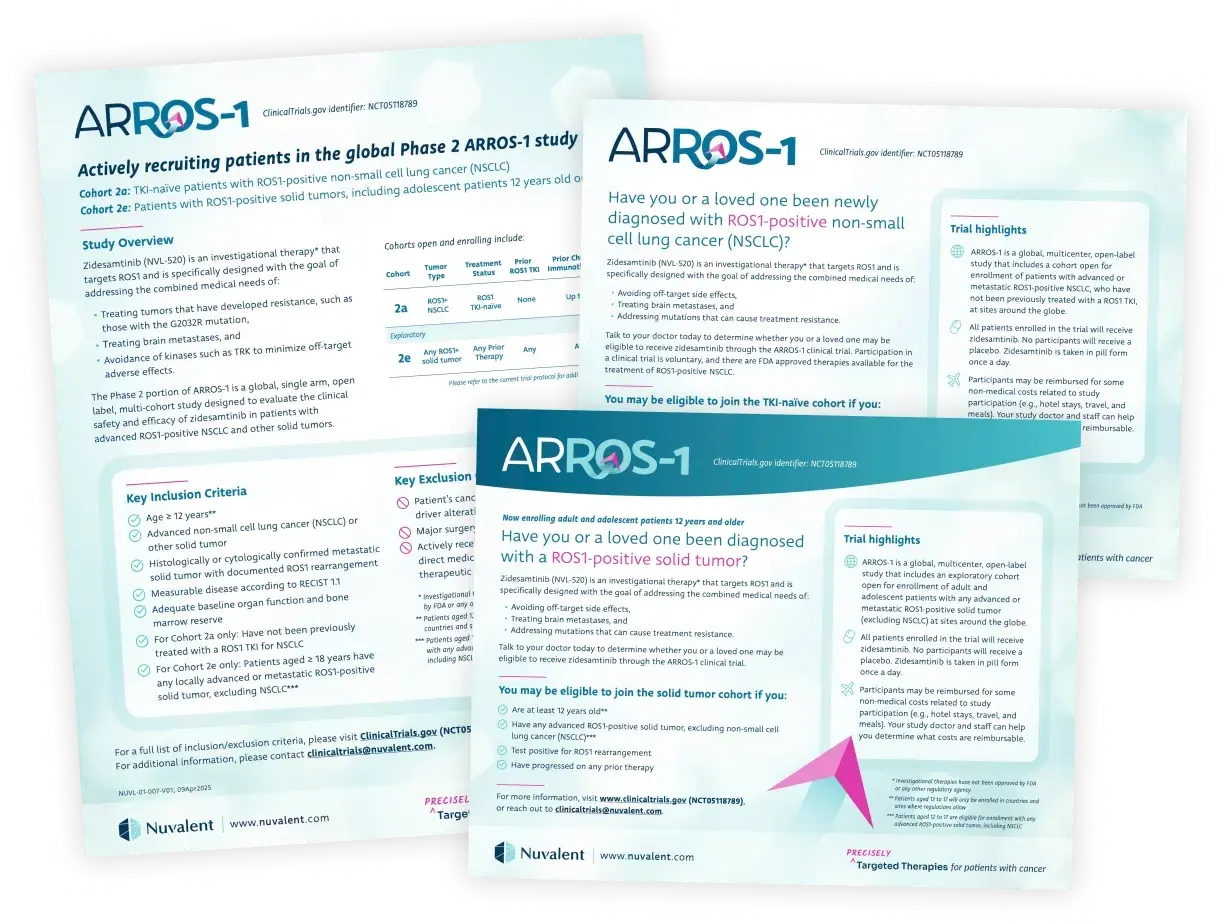Pipeline
Created for the Challenge
Nuvalent’s novel drug candidates solve for the dual challenges of kinase resistance and selectivity, with the goal of enabling durable responses for patients with cancer.


Nuvalent Pipeline
Programs
ROS1 fusions are an oncogenic driver alteration found in up to 3% of patients with non-small cell lung cancer (NSCLC). The clinical utility of approved therapies for ROS1-driven NSCLC is limited by emergent resistance mutations as well as central nervous system (CNS) disease.
Zidesamtinib (NVL-520)
Zidesamtinib is a novel brain-penetrant ROS1-selective inhibitor created with the aim of addressing the combined medical needs of:
- Treating tumors driven by ROS1 that have developed resistance to currently available ROS1 inhibitors, including tumors with the prevalent G2032R “solvent front” resistance mutation,
- Avoiding inhibition of the structurally-related tropomyosin receptor kinase (TRK) family, and
- Treating brain metastases.
ROS1-selectivity is emphasized to minimize CNS adverse events related to off-target inhibition of TRK and potentially drive durable responses for patients with ROS1-mutant variants. In addition, zidesamtinib has been optimized for brain penetrance to potentially improve treatment options for patients with brain metastases.
The Phase 2 portion of the ARROS-1 Phase 1/2 clinical trial of zidesamtinib for patients with advanced ROS1-positive NSCLC and other solid tumors is now enrolling. To learn more, please visit www.clinicaltrials.gov (NCT05118789).
Our Clinical Trials
Global Phase 2 investigating zidesamtinib for ROS1+ cancer
Have you or a loved one been diagnosed with ROS1-positive cancer?
Talk to your doctor today to find out whether you or a loved one may be eligible to receive zidesamtinib through the ARROS-1 clinical trial.
For more information, visit www.clinicaltrials.gov (NCT05118789).







